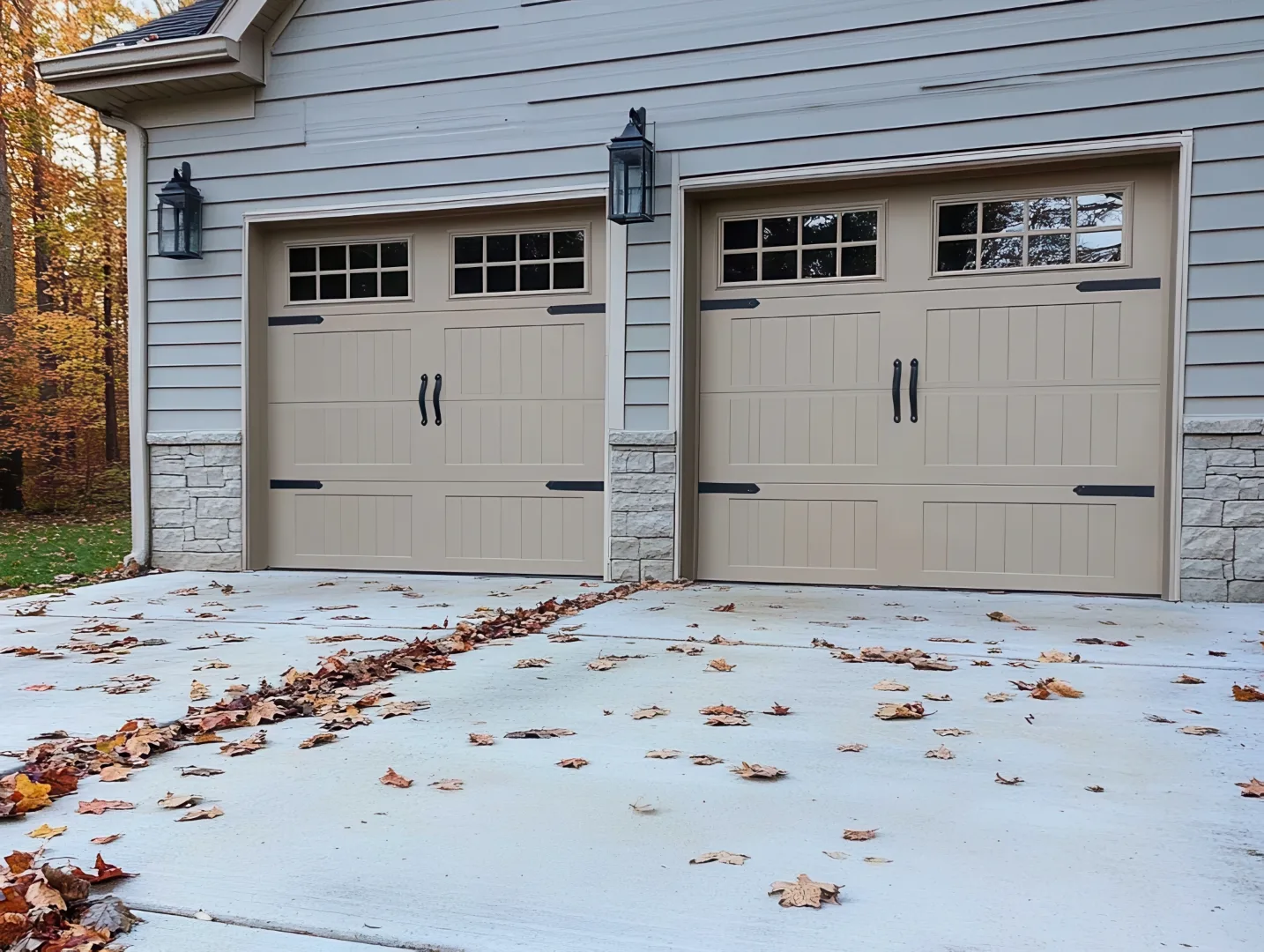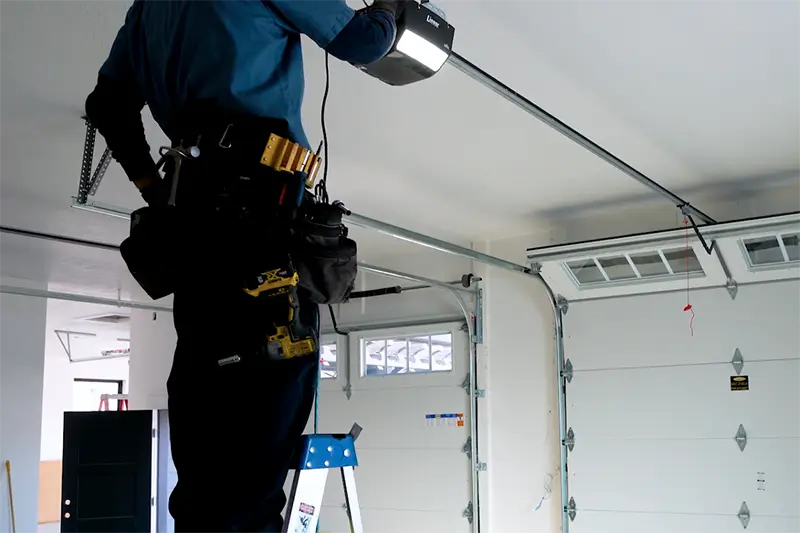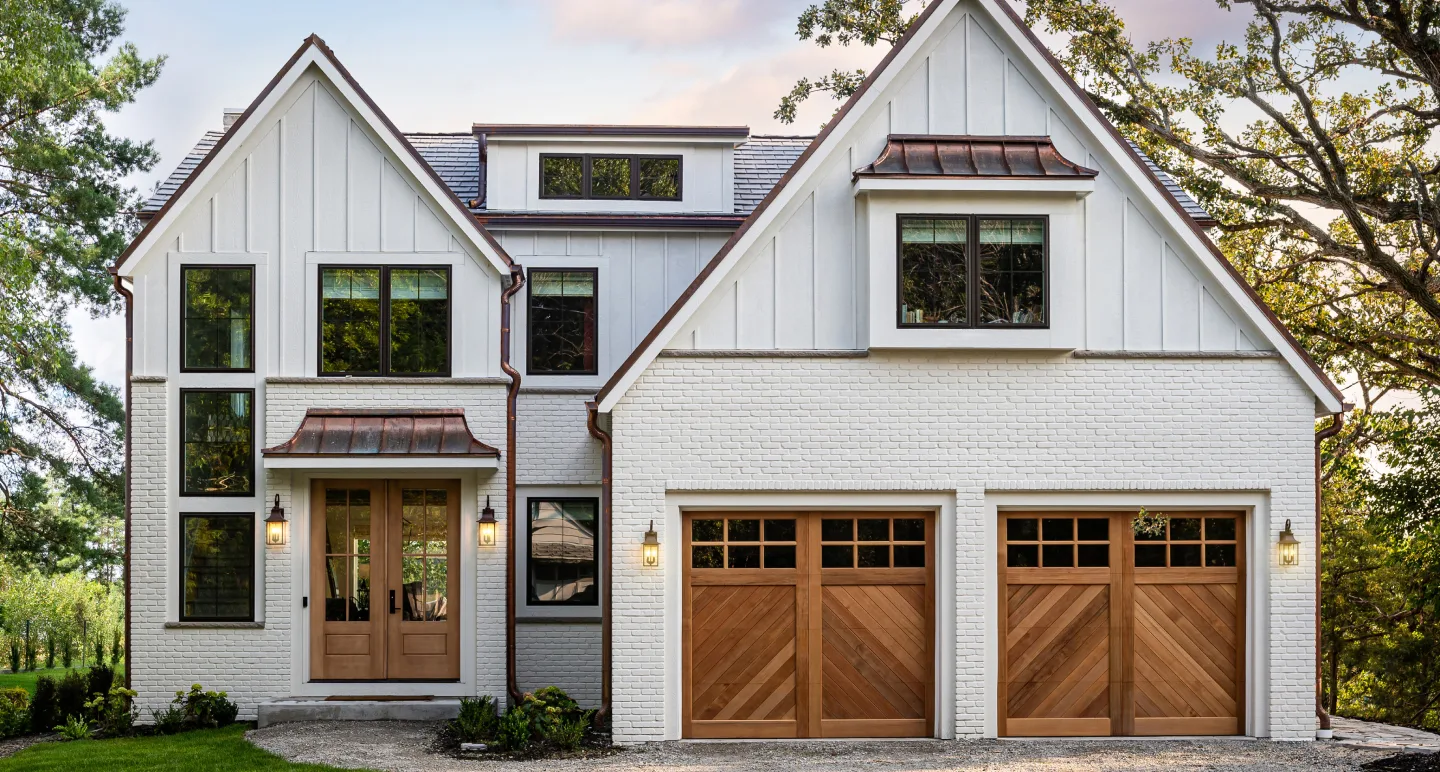
The Benefits of an Insulated Garage Door and Why it might be worth upgrading
Your garage door is more than just a barrier between your car and the outside world. It’s a key component of your home’s energy efficiency, comfort, and value. An insulated garage door can offer significant benefits that go beyond the obvious. From superior temperature control to increased durability, the advantages are numerous. But is it worth upgrading your existing garage door to an insulated one? This guide will delve into the benefits of an insulated garage door, exploring aspects such as cost savings, weather protection, and potential increases in home value. We’ll also discuss the different types of insulation available and provide insights to help you decide whether upgrading is the right move for you. Join us as we uncover the potential of insulated garage doors and why they might be a worthwhile investment for your home.
Understanding Insulated Garage Doors
Insulated garage doors are designed with layers of insulation that help regulate temperature. They are crafted to provide thermal efficiency for the space. This makes them a valuable upgrade for any home.
With insulated garage doors, you can expect enhanced strength and durability. The insulation material reinforces the door, making it less prone to damage. This added durability can translate to a longer lifespan.
These doors also serve to boost energy efficiency by reducing heat loss and gain. They help maintain a more consistent temperature within the garage. Here are key elements of insulated garage doors:
- Temperature regulation: Keeps garage warmer in winter, cooler in summer.
- Energy efficiency: Lowers energy bills by minimizing heat transfer.
- Durability: More resistant to wear and tear than non-insulated options.
In terms of resale value, an insulated garage door can make a difference. It improves curb appeal and functionality, making homes more attractive to buyers.

What is an Insulated Garage Door?
An insulated garage door is built with layers of insulating materials inside its structure. These materials are meant to better control the garage’s internal temperature. Unlike single-layer doors, insulated ones feature a multi-layered design. This design typically includes a core of insulation sandwiched between steel or aluminum. The main purpose is to offer a barrier against temperature fluctuations and noise. An insulated door keeps cold drafts out and helps maintain a stable environment.
Types of Insulation for Garage Doors
Different types of insulation materials are used in garage doors. Each type has unique properties and impacts the door’s efficiency. Common choices include polystyrene and polyurethane. Polystyrene is often used in rigid panels, while polyurethane comes in a form that fills spaces completely. Understanding these options helps in making an informed decision. Here’s a quick overview:
- Polystyrene: Provides solid thermal resistance, often less expensive.
- Polyurethane: Offers better insulating value (R-value), denser and more effective.
- Reflective Insulation: Less common, reflects heat away, suitable for hot climates.
Choosing the right type depends on your climate and garage use. Some options prioritize energy savings, while others focus on thermal protection.

Key Benefits of Insulated Garage Doors
Insulated garage doors offer a range of advantages for homeowners. They go beyond just keeping your garage warmer or cooler.
These doors contribute significantly to energy savings and overall home comfort. Moreover, they can enhance the curb appeal of any property, potentially boosting its resale value. They also shield the interior from weather elements, ensure quieter operation, and improve thermal performance.
Enhanced Temperature Control
One major benefit of insulated garage doors is their superior temperature regulation. They keep your garage warmer in the winter and cooler in the summer. This consistent temperature level is crucial, especially if you use the garage as a workshop or for storage.
Insulated doors help maintain a more stable indoor environment by reducing temperature fluctuations. This stability is particularly beneficial for homes with attached garages, where temperature changes can affect adjacent living spaces.
Furthermore, during extreme weather conditions, an insulated door provides a first line of defense. It minimizes the effect of extreme temperatures, enhancing comfort in the home.

Energy Efficiency and Cost Savings
An insulated garage door contributes to energy savings by reducing the transfer of heat. Less energy is required to regulate the temperature inside your home when the garage is properly insulated. This can lead to lower energy bills, providing long-term cost savings.
Investing in an insulated door may qualify homeowners for certain energy efficiency rebates. These can further offset the initial investment costs. By reducing energy consumption, you also benefit from a reduced carbon footprint.
Besides, an insulated door improves the overall energy efficiency of the property. It works in tandem with other home insulation measures like windows and walls. This comprehensive approach is crucial for achieving optimal energy efficiency.

Weather Protection and Durability
Insulated garage doors are built to withstand adverse weather conditions. They offer a reliable shield against water, wind, and other elements. This added protection helps maintain the integrity of the garage interior and its contents.
The construction of these doors makes them more robust. Insulated doors are typically designed with multiple layers and insulating materials. This design enhances their ability to resist damage from daily wear and tear.
Having an insulated door also prevents condensation, reducing rust and potential damage to stored items. For those using the garage for storage, this protection is essential for preserving valuables.

Noise Reduction and Quieter Operation
Insulated garage doors significantly reduce noise pollution. They are excellent at dampening sounds from the street and environment. This advantage is ideal for homes in noisy urban areas or busy neighborhoods.
Beyond keeping noise out, insulated doors also operate more quietly. The insulation helps to minimize the noise from opening and closing the door. For those who enjoy peace and quiet, this feature is beneficial.
The quieter operation is especially valuable if the garage is used as a living or working space. It allows for a more pleasant and undisturbed environment inside the garage.

Increased Resale Value and Home Aesthetics
Adding an insulated garage door can enhance the resale value of your home. Homebuyers often look for features that promise energy efficiency and modern amenities. An insulated door is a worthy investment with both these benefits.
These doors also offer various design choices, with multiple styles, colors, and finishes available. Whether your home is traditional or contemporary, there’s an option to match your aesthetic needs. This aesthetic versatility boosts your home’s curb appeal.
Insulated garage doors present a balance of function and style. This combination makes properties more appealing and potentially increases market value.

Considerations When Upgrading to an Insulated Garage Door
Before upgrading to an insulated garage door, consider several factors. Assess the upfront costs against long-term benefits.
Determine your priorities like energy savings, aesthetics, or noise reduction. Each factor may influence your choice of insulation type and style.
Compatibility with Existing Systems
An essential consideration is compatibility with existing systems. Ensure your current garage door opener can handle the new door’s weight.
Check if any additional hardware modifications are needed. This step helps avoid unexpected compatibility issues during installation.

Installation: DIY vs. Professional
Decide whether to undertake a DIY installation or hire a professional. A DIY project may save money, but expertise is crucial for optimal performance.
Professional installation ensures the door functions correctly and safely, though at a higher initial cost. Evaluate both options based on your skills and budget.

Maintenance and Longevity
An insulated garage door typically requires minimal maintenance. Regular checks will ensure your door’s longevity and performance.
Lubricating moving parts and inspecting weather seals are recommended. By keeping up with simple maintenance tasks, your door can last for many years.

Cost vs. Value: Is Upgrading Worth It?
Upgrading to an insulated garage door can seem expensive upfront. However, it offers many long-term benefits that justify the investment.
Consider the energy savings from reduced heating and cooling costs over time. These savings often offset the initial installation expenses.
Additionally, the increase in home value adds to the potential return on investment. Enhanced curb appeal can attract more buyers should you decide to sell.
Analyzing the Return on Investment
Determining return on investment requires evaluating several factors. Energy efficiency and lower utility bills contribute significantly to overall savings.
Over time, these savings accumulate, making the insulated door a cost-effective choice. The improved comfort and reduced noise are added perks for homeowners.

Potential Rebates and Incentives
Many areas offer rebates and incentives for energy-efficient upgrades. Research available programs in your region to take advantage of these savings.
Incentives can significantly reduce your upfront costs, making the upgrade more affordable. Consult with local experts or utility companies to explore your options.

Conclusion: Making the Decision to Upgrade
Upgrading to an insulated garage door is a decision with lasting effects. It increases comfort, cuts energy costs, and enhances curb appeal.
For many homeowners, the benefits outweigh the initial costs. Improved home value and a quieter, more efficient living space are compelling arguments.
Consider your specific needs and circumstances when deciding. Consulting with professionals can help you choose the best options for your home.
Ultimately, an insulated garage door offers a smart, sustainable solution. It elevates both the functionality and aesthetics of your property.
FAQs About Insulated Garage Doors
Many homeowners have questions about insulated garage doors. Here are answers to some common queries to help guide your decision.
Frequently Asked Questions:
- What are the main benefits of an insulated garage door?
- How do insulated doors improve energy efficiency?
- Are there different types of insulation available?
- Can I install an insulated garage door myself?
- Is an insulated garage door more durable than a non-insulated one?
Understanding these aspects helps you make an informed choice. Whether upgrading or installing new, an insulated garage door offers numerous advantages.

